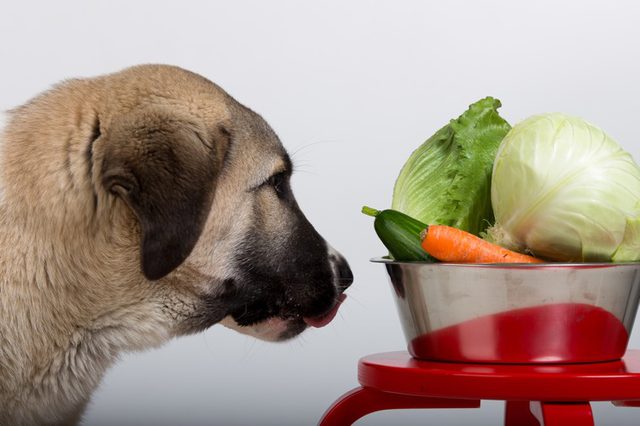Can my dog eat Lagos Bologi? 
Connect with a verified veterinarian in minutes. Licensed vets are available 24/7 to answer your questions. No need to worry about your furry family member.
Lagos bologi, also known as waterleaf or Talinum Fruitcosum, is originally from the tropical parts of Africa (West Africa), but is also grown in Asia and South America. This green leafy plant is classified as a weed, but is cultivated by farmers and is a good food source for people. Lagos bologi is a good source of Vitamins A & C, calcium, and more. This leafy green is commonly used in soups, salads, stews and more.
Can my dog eat lagos bologi? No, this leafy green is not recommended for dogs. Can my puppy eat lagos bologi? No. In spite of the waterleaf being extremely healthy for humans (in small amounts), it can be a health hazard animals. What if my dog ate waterleaf? The plant contains oxalate, which is known to cause kidney stones in both humans, pets and even farm animals. In addition, the plant contains hydrocyanic acid, which can cause severe gastrointestinal symptoms, incoordination, drooling and even confusion. Cooking the plant does remove some level of these toxins, but not enough to make it safe for dogs to eat.
Connect with a verified veterinarian in minutes. Licensed vets are available 24/7 to answer your questions. No need to worry about your furry family member.

Julie
Julie is a graduate of the University of North Carolina, Wilmington, where she studied Animal science. Though contrary to the opinion of her parents she was meant to study pharmacy, but she was in love with animals especially cats. Julie currently works in an animal research institute (NGO) in California and loves spending quality time with her little cat. She has the passion for making research about animals, how they survive, their way of life among others and publishes it. Julie is also happily married with two kids.
Review symptoms, medications & behavior to keep your pets healthy with a Vet Online in just minutes.
Ask a Vet Live Now

